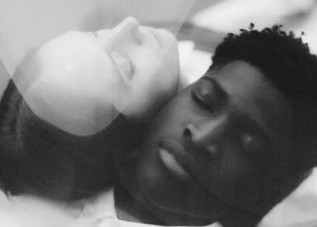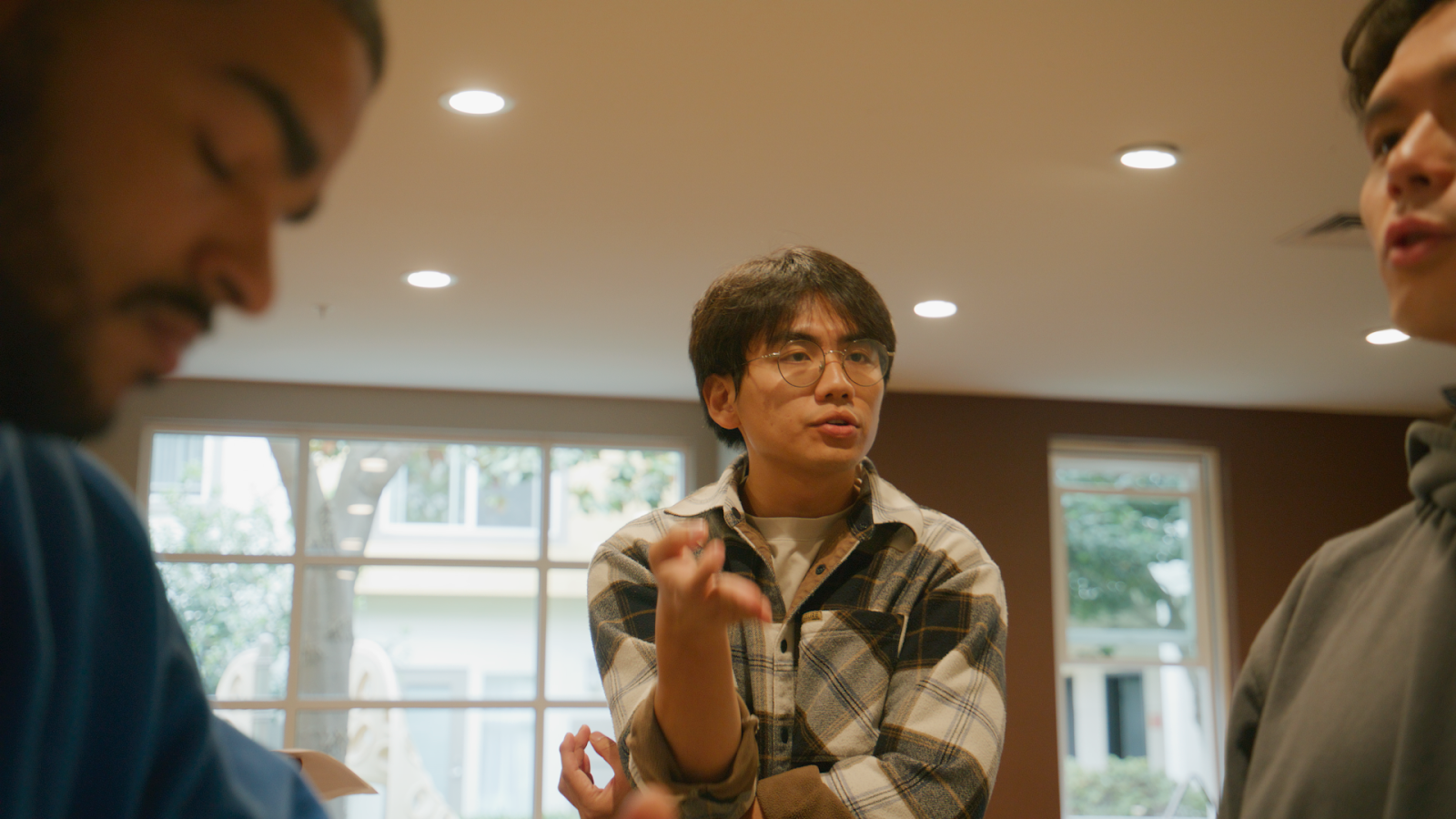
JUJ
The story of JUJ’s career might be best set to “Eye of the Tiger,” perhaps because she’s from Philadelphia.
The scrappy, youthful singer just released her debut EP, JUJ It’s You. After working with producers like Julian Nixon (Dr. Dre, Kendrick Lamar, A$AP Rocky), the singer sat down with Popdust to discuss the project’s creative process and where she plans to go from here.
So what have you been doing lately? On tour?
I’m pressing for a tour right now, yes. Also, I’ll be writing in London and New York for the next two months. And I’m going into rehearsals with my band for a North American tour in the fall and a European tour in the winter. I also have a song coming out in two weeks. So we’re building up a promo of that.
Is that song part of your new EP?
It’s “Mood” with Vic Mensa.
So he’s putting his own flow over the track?
Yeah, so he’s taking verse two. He’s from Chicago, where I used to live. He moved out of his home at the same age as I did: 17.
You were born and raised in Philly, correct? Do you see any parallels between Philly and Chicago?
Yeah. The people are super tough in both places. Thick-skinned. More so than on the west coast. I feel like the work ethic out there, too, is stronger than here in LA.
That’s ironic, considering LA is all about “making it.”
Well, I think people are better off in LA if they come from somewhere else. People here become friends with somebody who is doing big things, and that makes them feel like they’re doing big things: doing well by association. I have a lot of friends who have come to LA and then leave for New York, because they want to be surrounded by people who are hustling.
What does “JUJ” mean?
I was originally named Julia. My mom is Brazilian, and we went back there for a bit when I was young. “JUJ” is what they used to call me, and it stuck! Growing up in school, going to the doctors, I always introduced myself as “JUJ.”
Apart from the abbreviation, does it have a specific meaning?
No, it’s just what stuck. Also, I’m not really a “Julia.” [laughs] Also, it fits into “jujitsu,” the Brazilian martial art that I practice.
So I listened to the track “Hollywood.” It’s funny, because in the last few interviews I’ve done for Popdust, LA has been an important subject. So why do you think it fascinates people so much?
I felt like with a lot of songs written about LA or Hollywood paint it as a glamorous land of opportunity. But I knew that no one city was going to make it happen for me. When I first moved here, I was working full time as a nanny, and I was auditioning, performing my music, and finally met my first producer. Then I got Lyme disease. I spent a lot of time at a hospital in Beverly Hills and got very depressed. And then they told me the best option was for me to go back home. I felt like it would have [proven] all the [haters] right. Everyone has a time where something happens in the city that makes them feel like they don’t belong. They don’t write about that, because it makes them look weak, but I felt like there was something strong about being vulnerable about how I felt. The song “Hollywood” starts with doubts, and over the course of the song those doubts are turned into affirmations.
So it sounds like Lyme Disease had as much a disillusioning effect on you as the city!
It was more [about] all the people back home having told me I wasn’t going to succeed. I was this little girl sick by herself in the big city. It was the whole circumstance.
How early did you start playing music?
I’ve been playing music my entire life. [laughs] I know that’s super cliche, but it’s true.
Were your parents musical?
Neither of my parents can sing to save their lives, but my mom, she moved from Brazil to America when she was 18 not knowing anybody. She wanted to move to New York and be a dancer, but she didn’t have the means to make it; she just had to survive. That’s in part what inspired me: do what she couldn’t. And she met my dad while working at Chili’s. She was a waitress, and he was a bartender.
That’s oddly romantic.
[laughs]. Yeah. So, my mom was always playing Brazilian music around the house, while both of us were learning how to speak English. That’s why I don’t know how to speak Portuguese.
So she was more of an assimilationist?
Essentially, yeah. She also played a lot of English-language music around the house. Oh, also I should mention I’ve been doing musical theater since I was very young! I was aping the music to “Annie” before I could talk.
What’s your favorite musical?
“Les Miserable.” To be Eponine in “Les Miserable!”
How did you get into music, then?
Well, I’m very religious, and when I was young I asked my parents if I could join a choir. We found a Presbyterian choir (neither my family or I am Presbyterian).
So your parents were religious?
No, I found it by myself. I used to make my parents drop me off at churches by myself.
That’s the complete opposite of what usually occurs.
I know! The friends of mine who were raised religious, now they’re kind of disillusioned with it. When I first moved to LA, the first thing I did was join a church, for that sense of community.
So that led to the music, singing in choirs?
Then I joined the school choir. After that, I became obsessed with singing. I entered myself into competitions and all that. I got my first job was I was 12, with The Music Man at the Walnut Street Theater in Philadelphia. I was getting paid to do shows, eight shows a week.
Fast forward, then, to LA. How did that work? Did you have a plan?
After the Walnut Theater, I started looking for other theater jobs. Then I performed at the Apollo Theater and won the “Child Stars of Tomorrow” competition. Then after that, I was doing a lot of cabarets in New York, taking the Megabus from Philly. And then I got involved in a short film that made me fall in love with TV and film. So I figured I’d move to LA. But how to convince my parents?
It turned out, though, not to be a problem: My mom’s parents had let her go to move to America. So I knew she’d be supportive. So I moved out, got a voice coach, and started doing open mics. One night, a producer attended an open mic and asked to set up a session. I had never done a real session with a producer. I ended up helping out a singer-songwriter with her song, and the songwriter for the session’s manager liked my voice and got my info, etc, etc. Eventually, I signed with my current manager, Nathan, and we started really doing writing sessions, honing the craft. And then for the first EP, I didn’t just want to write relationship songs. It would have been too predictable for a 17-year-old to come out with that. Instead, I wrote about my journey.
Who’s your main producer now?
Sean Cook. He produced the first EP, and now we’re working on singles together. He became one of the top two best friends of my entire life. We’re like sisters. Well, not sisters, because he’s a boy…It’s just so easy to create with him because of the bond we have.
In the press material I read before this interview, phrases like “progressive outlook” and “be the change you want to see” jumped out. Are those themes you see reflected in the EP?
Yeah! Especially the “change” idea. We can complain all we want about what’s going on in the world, but nothing’s gonna change unless we are the change. Living in LA, there’s a ton of people that complain, but let’s do something about it! For instance, the song “Black Mirror” is about getting off our phones and experiencing the world around us.
The track I liked the most was “Barricade.”
That’s my favorite one, too! Everyone on my team, when we were putting the music out, they did not like it, and I was like, “Damn, that’s my favorite one!”
I think it’s cool because there are so many different textures and dynamics. There’s a glitchy dub-step thing combined with a gospel vibe, for instance.
Yes!! That’s like my thing! When I started the EP, I wanted to incorporate the gospel choir sound.
Can you give me some insight into how that track came together?
So with “Barricade,” I wanted to write about obstacles, overcoming them in an empowering way.
And the music itself? There are so many different elements. It sounds like quite a labor.
Yeah! It kind of took a village. Sean, the producer, made a beat; we wrote to that beat, then he added a few different production elements and the guitar. And then after my vocals were recorded, a good friend of ours, Taylor, played keys. And that choir is real. I took a bunch of musician friends from around LA. They’re the background vocals.
Is the EP paving the way for a full-length album?
We’re pushing the EP hard, and I’m in the process of writing a lot of singles to follow it.
And is there a tour in the works?
Um, yes. Right now we’re in rehearsals, but we’re looking to do some support tours as an opener, around August and September.
Last question: Do kids still try and fix the crack in the Liberty Bell as a high school prank?
I mean, we’ve thought about it, but none of us have gotten away with it. That’d be badass.














